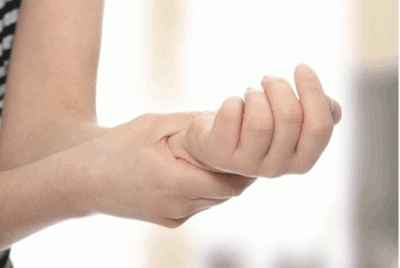When experiencing postpartum insomnia, you can consider several ways to improve your sleep: Try to sleep at consistent hours, such as right after a nighttime feeding, and avoid too many sleep interruptions. Also, removing electronic devices like phones, tablets, or TVs from the bedroom can ease your mind and help you fall asleep more easily.
When experiencing postpartum insomnia, you can consider several ways to improve your sleep:
- Establish a fixed sleep routine One of the most effective methods to improve sleep is to create a consistent sleep schedule. Our bodies operate on a circadian rhythm, so going to bed and waking up at the same time each day helps regulate our biological clock. Even though many women have to wake up at night to care for their babies, maintaining a regular sleep routine at appropriate times will help the body gradually recover and readjust.
Try to sleep at consistent hours, such as right after a nighttime feeding, and avoid too many sleep interruptions.
- Create a comfortable sleep environment The sleep environment plays a crucial role in improving sleep quality. The bedroom should be cool, quiet, and dark. You should minimize distractions such as noise, strong lights, or high temperatures. Using soft pillows and blankets can add comfort and help relaxation.
Also, removing electronic devices like phones, tablets, or TVs from the bedroom can ease your mind and help you fall asleep more easily.
- Gentle exercise Exercise is an effective way to relax the body and improve sleep. After childbirth, light exercises like walking, yoga, or stretching can reduce stress and improve circulation. These activities help the mother’s body recover and ease the mind, creating a better chance for quality sleep.
Relaxing before bed is another effective way to reduce stress and prepare the body for sleep. Try listening to soft music, deep breathing, or meditation. Deep and slow breathing helps reduce anxiety and improves sleep quality. However, be sure to consult your doctor on which exercises are safe in the postpartum period.
- A proper diet Nutrition after childbirth directly affects sleep quality. The body needs essential nutrients to recover and nurture the baby. Poor dietary habits can lead to insomnia. Avoid foods high in caffeine such as coffee, black tea, or chocolate, especially in the afternoon or evening.
Instead, eat foods rich in magnesium like leafy greens, nuts, bananas, and dairy products to help the body relax. Foods high in tryptophan like milk, cheese, and chicken can promote the production of serotonin and melatonin – hormones that regulate sleep.
- Use natural remedies Many postpartum women turn to natural remedies like herbal teas or essential oils for relaxation and sleep. Chamomile tea, ginger tea, or mint tea can reduce stress and help the body unwind, creating better sleep conditions. However, always consult your doctor before using herbal products to avoid unwanted side effects.
- Mental health care Stress and anxiety after childbirth are common causes of insomnia. Worries about baby care, household chores, or lifestyle changes can affect sleep.
Caring for your mental health is essential. Seek support groups, talk with loved ones, or attend yoga and meditation classes to reduce stress. In severe cases of anxiety, you may need help from a specialist.
How postpartum insomnia affects health Postpartum insomnia can negatively impact a mother’s physical and mental health, as well as the development of the infant and those around her. If not managed early, it becomes difficult for the mother to stay alert and properly care for the baby.
Lack of sleep lowers immunity and creates conditions for illnesses. Fatigue can also reduce milk supply, leading to reliance on formula instead of breastfeeding.
Insomnia affects mental health by causing fatigue, sadness, and low energy. This leads to frustration, irritability, weakened bonding with the baby, and strained family relationships.
Effective prevention of postpartum insomnia To avoid health complications due to insomnia, consider these postpartum tips:
- Sleep when the baby sleeps: Rest during the day when the baby naps, especially if night sleep is not sufficient.
- Limit caffeine and alcohol: Stimulants like caffeine, alcohol, and nicotine can worsen insomnia. Avoid them during this period to protect your health and sleep.
- Limit screen time: Exposure to screens before bed can disrupt sleep. Light from these devices reduces sleep quality, so avoid using them at least two hours before bed.
Hanoi French Hospital is a trusted healthcare provider offering high-quality maternity care. Their experienced team of obstetricians and modern facilities give mothers peace of mind during pregnancy.
You can explore the hospital’s maternity program, which includes thoughtfully designed check-up packages to closely monitor the mother’s health throughout pregnancy, delivery, and the postpartum period.








